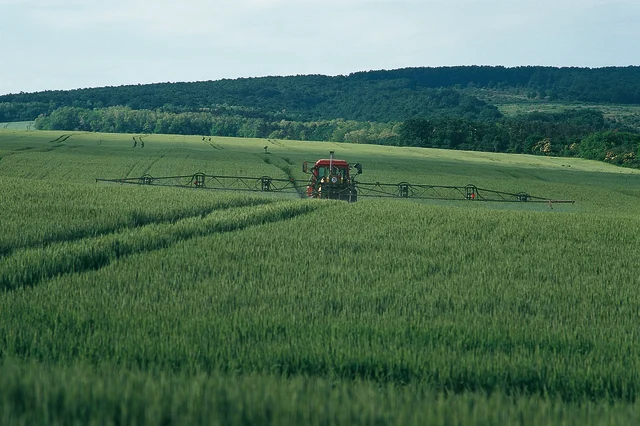Published on 1st July 2022
Weed Management
Glyphosate remains a vital tool for ryegrass control

Researchers tested glyphosate performance against 50 populations of ryegrass gathered in 2019 as part of a programme investigating resistance among selective herbicides. No resistance to glyphosate was found but product stewardship needs to remain a high priority for farmers battling grass weeds.
Investment in research
The 2019 research found reduced sensitivity and some resistance to selective herbicides in 50 Italian ryegrass samples chosen as being difficult to control. Keen to ensure the long-term performance of Roundup, Bayer partnered with NIAB to measure the same populations for sensitivity to glyphosate. In addition, the results from 2019 prompted Bayer to conduct the 2021 ryegrass survey, which is providing valuable insights into ryegrass control.
No resistance found
The most important piece of news is that the research found no resistance to glyphosate in UK field populations of Italian ryegrass. Hence, label rates, properly applied will control Italian ryegrass. However, there was some variation in sensitivity to glyphosate, which is an indicator of potential for resistance.
Genetic potential
“The genetic potential for resistance is there,” says John Cussans who led the research. In lab and glasshouse experiments, we managed to select a population for resistance. These experiments don’t exactly reflect how selection happens in the field but are useful for assessing the risk.”
No link with sensitivity shifts in post-em or pre-em herbicides
“We looked carefully at populations showing reduced sensitivity to glyphosate and checked if it correlated to reduced sensitivity to Axial, Atlantis or flufenacet,” says John Cussans. “The risk of selecting for reduced sensitivity to glyphosate appears to be totally independent of selection to in-crop herbicide selection for resistance.”
This finding simplifies the resistance prevention strategy for glyphosate. How farmers use glyphosate in the field within an integrated weed management programme will determine if resistance appears.
Manage the risk
Resistance is not inevitable, but farmers need to pro-actively manage the risk, not wait until they think they might have a problem.
“The message doesn’t change,” says Roger Bradbury of Bayer. “Apply at the right time, with the right dose for the target weed with good application technique. Use other actives and cultural controls in the cropping cycle and don’t rely on glyphosate as the only form of weed control.”
Having diversity of chemical actives and non-chemical control techniques across the rotation is absolutely essential. He advises farmers to pay attention to herbicide performance and investigate any poor control immediately, most likely it is application related but it is important to make sure.



